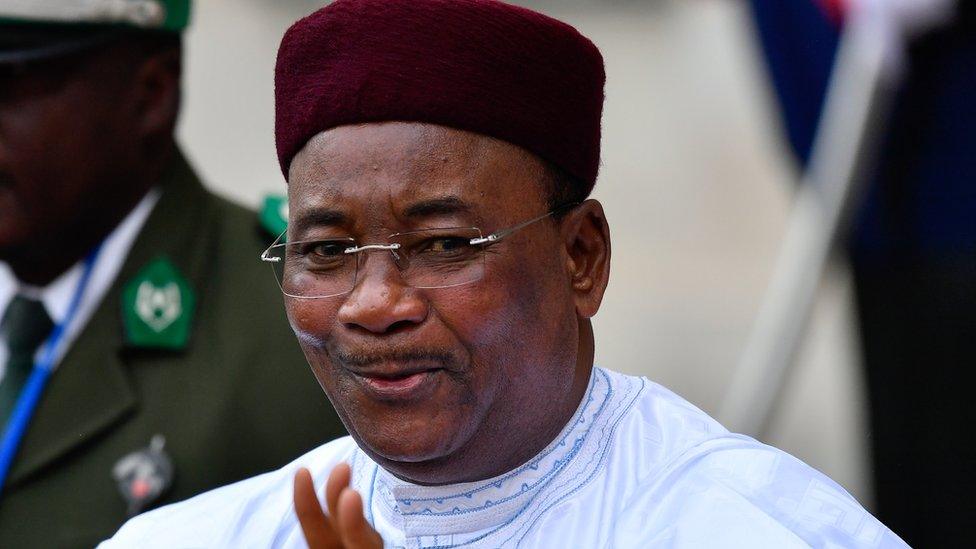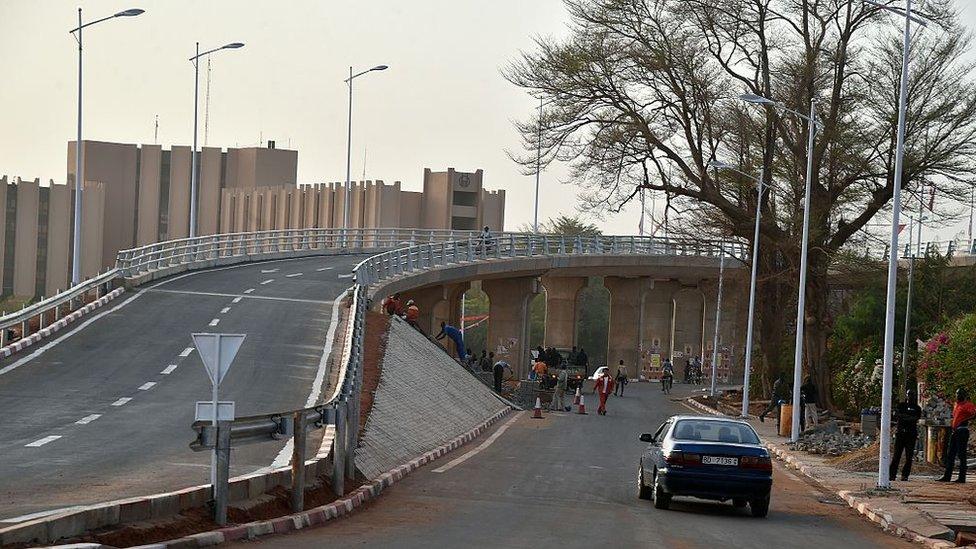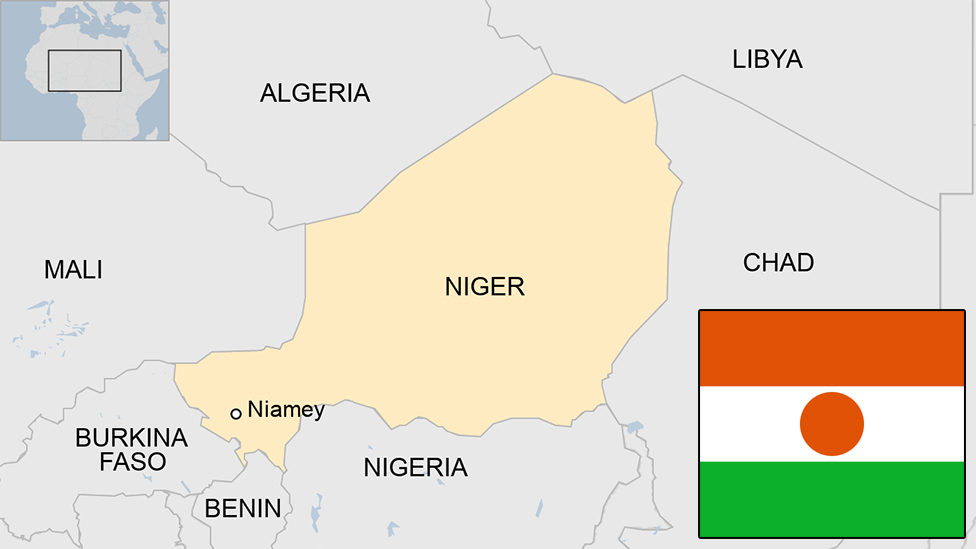Niger's Mahamadou Issoufou - why he won a $5m prize
- Published

To win the 2020 Ibrahim award for African leadership, and the $5m (£3.6m) prize attached to it, Niger's President Mahamadou Issoufou had to leave office.
His decision to step down after two terms means Niger will have the first democratic transition between elected leaders since it became independent from France more than 60 years ago.
But that was not the only reason why he was given the award - the prize committee praised his leadership after inheriting one of the world's poorest economies.
It said that he had "fostered economic growth, shown unwavering commitment to regional stability and to the constitution, and championed African democracy".
For a prize that has not been awarded in some years because of the lack of a suitable winner, Mr Issoufou's credentials should not be taken for granted.
If the 68-year-old wanted to remain in power, he could have copied other presidents across West Africa who managed to get the constitution changed so they could extend their time in office.
But his convictions would not let him do so, he told the BBC before last month's elections.
"I respect the constitution. I respect the promise I made to the people of Niger who have given me the honour of leading them for two terms. This decision is in line with my convictions and my vision of what Niger's democratic future should be," he said.
His one area of regret
Niger is the world's poorest nation, according to the UN's development rankings for 189 countries - it struggles with frequent droughts, insurgency and widespread poverty.
It is currently involved in two conflicts, which are spillovers from jihadist insurgencies in neighbouring Burkina Faso, Mali and Nigeria, that have forced hundreds of thousands to flee their homes.
Groups linked to al-Qaeda, the so-called Islamic State group and Nigeria's Boko Haram are all present in Niger but in terms of overall numbers of attacks, it has suffered fewer than its neighbours.

Previous winners of the Ibrahim prize:
Ellen Johnson Sirleaf, Liberia (2017)
Hifikepunye Pohamba, Namibia (2014)
Pedro Pires, Cabo Verde (2011)
Festus Mogae of Botswana (2008)
Joaquim Chissano of Mozambique (2007)

But the Islamist militant threat is one area of regret for Mr Issoufou as he prepares to hand over next month after 10 years of consecutive five-year terms in office.
"If I have any regrets, it is that we are unfortunately still victims of terrorist attacks. But I would like to stress here that hotbeds of terrorism do not exist in Niger.
"It is from neighbouring countries that terrorists come to attack us. And when we look at what has been done even in this respect, it is remarkable," he said.

Most of the transformation in Niger has taken place in the capital, Niamey
Mr Issoufou has also tried to transform Niger - the capital Niamey has seen a flurry of new roads, hotels and meeting centres.
But critics say other parts of the country have not benefited from such investments.
Historically a gateway between North and sub-Saharan Africa, Niger has become a major transit route for migrants heading to Europe. Here, it has agreed to work with the European Union to halt the flow.
It also faces economic challenges as its main export, uranium, is prone to price fluctuations
The task of continuing whatever strides Mr Issoufou made in infrastructure and security now falls on his handpicked successor, Mohamed Bazoum, who won February's election.
Mr Bazoum will have to deal with an insurgency raging on two fronts and an opposition that feels he is not the legitimate winner of the election.
For Mr Issoufou, hailed as "leading his people on a path of progress", he will be remembered as the man who helped Niger drop the "coup-prone West African country" tag, and it is a legacy that will last longer than his $5m prize money.
Related topics
- Published4 August 2023
